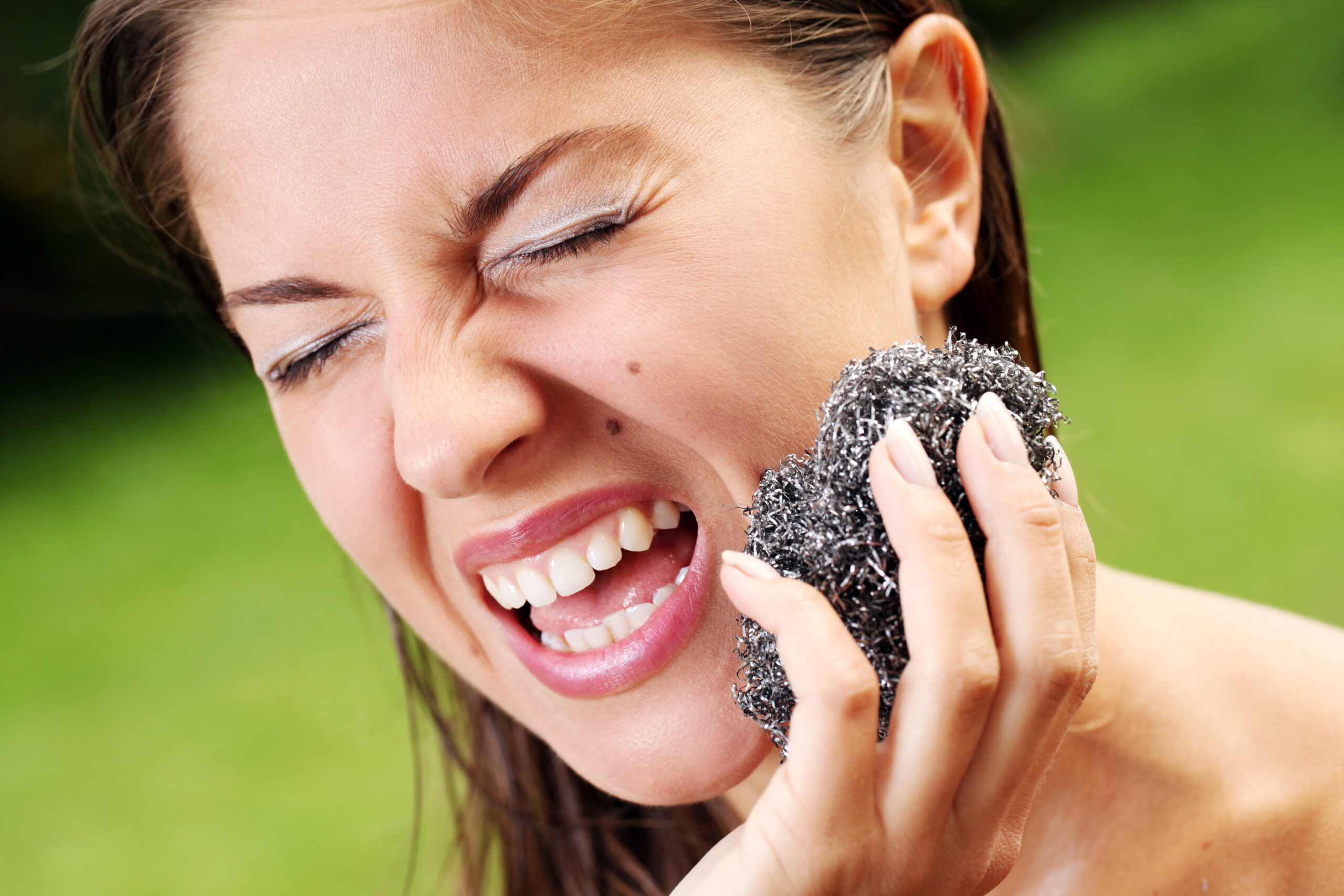How to Identify Tooth Wear, Different Types & Causes of Worn
Tooth wear is a periodontal issue usually resulting from bruxism, age, and consumption of acidic diets. Sensitive teeth, toothache, and cosmetic concerns are some problems worn-down teeth can lead to. Luckily, cosmetic dentistry procedures such as bonding resin, crowns, or porcelain veneers will restore teeth aesthetics and functionality. Some measures allow for prevention, such as protecting oral hygiene and preventing teeth grinding.
What is Tooth Wear?
Tooth wear refers to the gradual loss of tooth structure due to other processes beyond decay and trauma. It occurs over time and can extend to the teeth’ enamel, dentine, and deep structures. There are three basic forms of tooth wear:
- Attrition: Contact of one tooth against another, usually from grinding or clenching.
- Abrasion: External factors such as aggressive brushing or abrasive applications from dental products.
- Erosion: Acids arising from the diet or stomach attack the tooth enamel.
If left untreated, tooth wear may cause tooth sensitivity, changes in appearance, and increased susceptibility to dental issues.
Causes of worn down teeth
Getting worn-out and chipped teeth can be a function of several reasons, such as old age, where enamel naturally wears over time. Having a bruxism habit, grinding or clenching leads to attrition where the tooth surface gets polished down due to harsh frictional forces. Abusive chewing of hard substances damage also weakens and polishes down the tooth surface. Further, these substances, particularly food and drinks, contain high acid content, which adds to the erosion of the teeth, making them weak.

- Age
As time passes, most individuals go through the natural process of wearing and getting their teeth used, leading to enamel depletion.
- Attrition (Teeth Grinding)
Bruxism, or repetitive grinding and clenching of the jaw, leads to much friction of the teeth with each other; hence, an enamel abrasion takes place.
- Erosion (Caused by Acids)
Teeth can get further weakened after being regularly subjected to excessive acidic foods or beverages.
- Abrasion (Chewing Things You Shouldn’t)
When bitten or chewed, hard objects such as fingernails, ice, or even pens damage and wear tooth fields.
Symptoms of Worn Teeth
Diet can affect your overall good health because weakened teeth can show greater sensitivity to temperature changes and sugar. This condition can also lead to an increased likelihood of chipping and fracture of the teeth.
- Loss of Protective Enamel
Due to enamel erosion, the teeth may feel more rough and thinner than usual.
- Increased Tooth Sensitivity
The reaction to hot, cold and sweet foods increases progressively worse.
- Changes in Appearance
An uneven, short, or discoloured outlook for the teeth develops with time.
- Chipping
The edges of the teeth become weak and break far too easily.
- Transparent Teeth
Enamel is lost, so the teeth’ edges become visible, making them look transparent.
How to fix worn down teeth
Fixing worn-down teeth involves restoring their structure and protecting them from further damage. Several methods exist to restore worn-down teeth, including resin bonding, veneers, and crowns.The severity of the damage and the unique requirements of the patient determine the type of treatment to be used.
Resin Bonding
This technique applies tooth-coloured resin over the problematic area to reshape and protect the tooth.
Veneers
These thin shells are placed over the front of the tooth to aid in its appearance and function.
Crowns
These caps are placed over teeth worn down badly to help with their restorative properties.

How to tell if your teeth are worn down
- Teeth Are Smaller in Size: Worn teeth often appear shorter or noticeably smaller than before.
- Teeth Are More Sensitive: Sensitivity to hot, cold, or sweet foods increases as protective enamel wears away.
- Teeth Are Chipped: Worn teeth become weaker and are more likely to chip or crack.
- Teeth Have Begun to Yellow: Thinning enamel reveals the basic dentin, giving teeth a yellowish appearance.
Complications of Tooth Wear if Left Untreated
Leaving worn-down teeth untreated can lead to several ill health, including:
- Increased Sensitivity
Loss of enamel exposes nerve endings, causing pain or discomfort with hot, cold, or sweet foods.
Worn enamel makes teeth more vulnerable to cavities and decay.
- Weakened Teeth
Structural damage increases the risk of fractures, chipping, and breaking.
- Bite Problems
Uneven tooth wear can alter your bite, leading to jaw pain or temporomandibular joint (TMJ) disorders.
- Aesthetic Issues
Shortened, discoloured, or chipped teeth can impact the appearance of your smile.
- Difficulty Chewing
Severe wear can reduce chewing efficiency, making eating uncomfortable.
Addressing tooth wear promptly can help prevent these complications and maintain oral health.
Prevention
- Avoid Teeth Grinding: Wear a night guard if you grind your teeth at night or practice stress-reducing techniques to prevent bruxism.
- Practice Good Oral Hygiene: Brush gently with a soft-bristled toothbrush and use fluoride toothpaste to protect enamel.
- Limit Acidic Foods and Drinks: Reduce the consumption of acidic foods and beverages like citrus, soda, and wine to prevent enamel erosion.
- Use a Mouthguard for Sports: Wear a mouthguard to protect your teeth from injury when participating in contact sports.
- Visit Your Dentist Regularly: Regular dental check-ups can help detect early signs of tooth wear and address issues before they worsen.
Taking these steps can help prevent tooth wear and maintain your dental health.
Treatment for Worn Down Teeth Near You
If you are wearing down your teeth, then you can do the following to find services nearby:
- Google Search: Use Google to search for restorative dentists or dental clinics within your area.
- Dentist Directories: Look for web pages such as ADA’s Find a Dentist or similar directories where you can search for dentists nearby.
- Friends and Family: People you trust, such as your friends, family, or healthcare providers, can serve as a source for professional recommendations.
- Phone Inquiries: Call local dentists offering teeth bonding, crowns, veneers, and other services.
Finding a local dentist who helps find the services one is looking for becomes easier for you.
Finally Thoughts For Worn Teeth
If untreated, worn teeth can become excruciating and unsightly and cause some serious long-term consequences. Fortunately, several methods can help restore the teeth’s normal appearance and function if done in time. Crowns, veneers, and resin bonding are typical solutions that can provide protection and restoration. However, it’s all about prevention; whether it’s avoiding grinding your teeth, practising good oral hygiene, or minimizing the intake of acidic foods, your smile will be well preserved. Regular dental checkups are vital to spot early signs of wear and tear or damage to the teeth. Worn teeth don’t have to ruin your smile; if you address them early enough, your smile will stay healthy and confident for many years.
Quick Tip: To prevent tooth wear, avoid grinding your teeth, especially at night. Consider using a night guard, and always brush gently with a soft-bristled toothbrush to protect your enamel.

FAQs
Can worn teeth be repaired?
Yes, worn teeth can be repaired with treatments like resin bonding, veneers, or crowns.
What does worn teeth indicate?
Worn teeth may indicate teeth grinding, acidic food consumption, or poor oral hygiene.
Can deteriorating teeth be fixed?
Yes, deteriorating teeth can be fixed with restorative treatments like fillings, crowns, or veneers.
How do you treat a worn tooth enamel?
Worn enamel can be treated with fluoride treatments, bonding, veneers, or crowns to restore protection.


